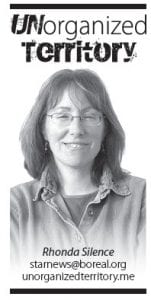I am diligent about voting. I am a firm believer in the adage, “If you don’t vote, don’t complain.”
I have voted in every election since I was old enough to vote, even when it was inconvenient. For most of the years that I lived away from Minnesota with my soldier husband, I cast my vote by absentee ballot. From Washington State, Germany, Colorado and California, I went through the steps to apply for an absentee ballot and get it returned promptly.
But with every election, I imagined one day being able to go to the polls to cast my vote—the polls back “home” in Minnesota. I remember going with my mom when she voted at a town hall. My memory is sketchy, but I think she voted at what is now a house at the top of Fall River Road (County Road 13). I remember the U.S. flag hanging at the entrance. I remember neighbors visiting as they were coming and going.
I also remember controversy about voting when I was a teenager. It may seem unbelievable to the current generation, but when I was growing up, you had to be 21 years old to vote. There were a lot of changes in the turbulent ’60s and lowering the voting age to 18 was one of them.
I was a bit young to follow all the debate about letting 18-yearolds vote. Apparently the suggestion was first made before I was even born. President Dwight D. Eisenhower was the first president to endorse voting rights for 18-year-old citizens in his 1954 State of the Union Address.
It took quite awhile for the idea to take hold and there was a great deal of legal maneuvering as many states questioned the federal government’s right to lower the minimum voting age. States that refused to follow the federal government’s lead faced the need to have separate voting rolls and special ballots for voters between 18 and 20 years old for federal elections.
I don’t remember all this legal wrangling, but I do remember the young men facing the draft into military service—and the possibility of being sent off to fight in the Vietnam War—demanding the right to vote. I remember news stories on our old black and white TV about the horrors of the war. I remember watching footage of anti-war protests and amongst the protest signs there were some that read, “Old enough to fight, old enough to vote.”
In those times of trouble in our nation that message appeared to be something citizens could finally agree on. On March 10, 1971, the U.S. Senate voted 94-0 in favor of an amendment lowering the voting age. On March 23, 1971, the U.S. House of Representatives voted 401-19 in favor of the proposal.
Amazingly states followed suit. To add an amendment to the U.S. Constitution, three-fourths of the United States must ratify Congress’s action. I’m proud to note that Minnesota was among the first five states to agree. Ratification was completed on July 1, 1971 when enough states had taken action. On July 5, 1971, with President Richard Nixon as witness, the Twenty-Sixth Amendment became part of the Constitution.
I was 14 years old and more interested in clothes and nail polish and whether or not the Beatles would ever get back together than politics, but I still remember feeling jubilant that I would soon be able to vote.
The first presidential election in which I had a vote was in 1976. I was able to choose between the Jimmy Carter/Walter Mondale or Gerald Ford/Bob Dole tickets. I won’t say who I voted for. But it was with great pride that I was able to vote in my first election. Even though it was an absentee ballot mailed back home to Minnesota.
I know it is unlikely that any 18-year-olds read Unorganized Territory. But if they do, I hope they take a minute to think of the struggle that went into establishing the right for them to vote.
Young women also owe a debt to the women suffragettes who fought for women’s right to vote. Without the work of Susan B. Anthony, Elizabeth Cady Stanton, Lucretia Mott, Jane Addams the 19th Amendment would never have come to pass.
But that’s another column. This week I’d just like to remind everyone in Unorganized Territory that voting is not something to take lightly.
So if you’re 18 and want to vote, take some time to go to the Cook County courthouse before the end of the day on Tuesday, October 14 to pre-register. You don’t have to pre-register, but it makes voting much easier.
When you pre-register your name gets added to the official roll of voters. In most of Cook County, that means you will receive a ballot in the mail. In the City of Grand Marais, it means when you go to the polling place, you’ll be on the list and will be able to enter the voting booth to cast your vote— quickly and easily. And hopefully, proudly.
Voters don’t decide issues, they decide who will decide issues.
George Will



Loading Comments